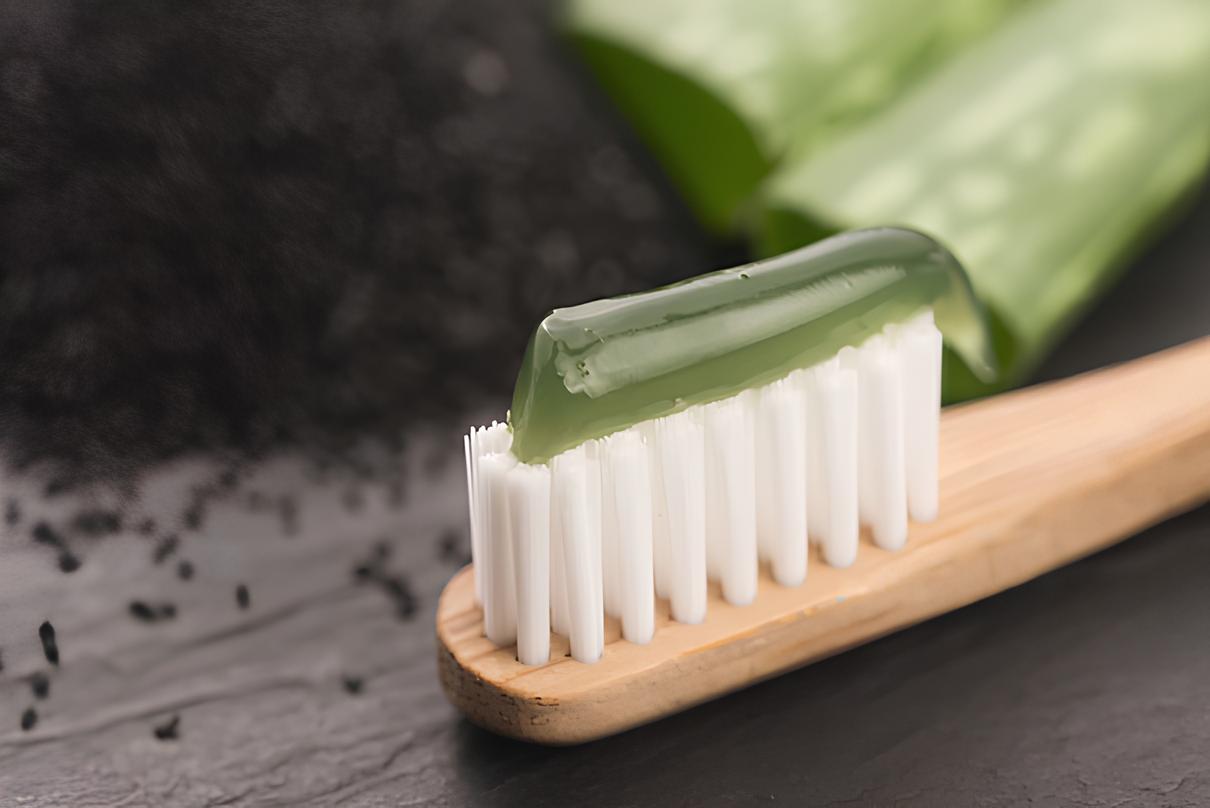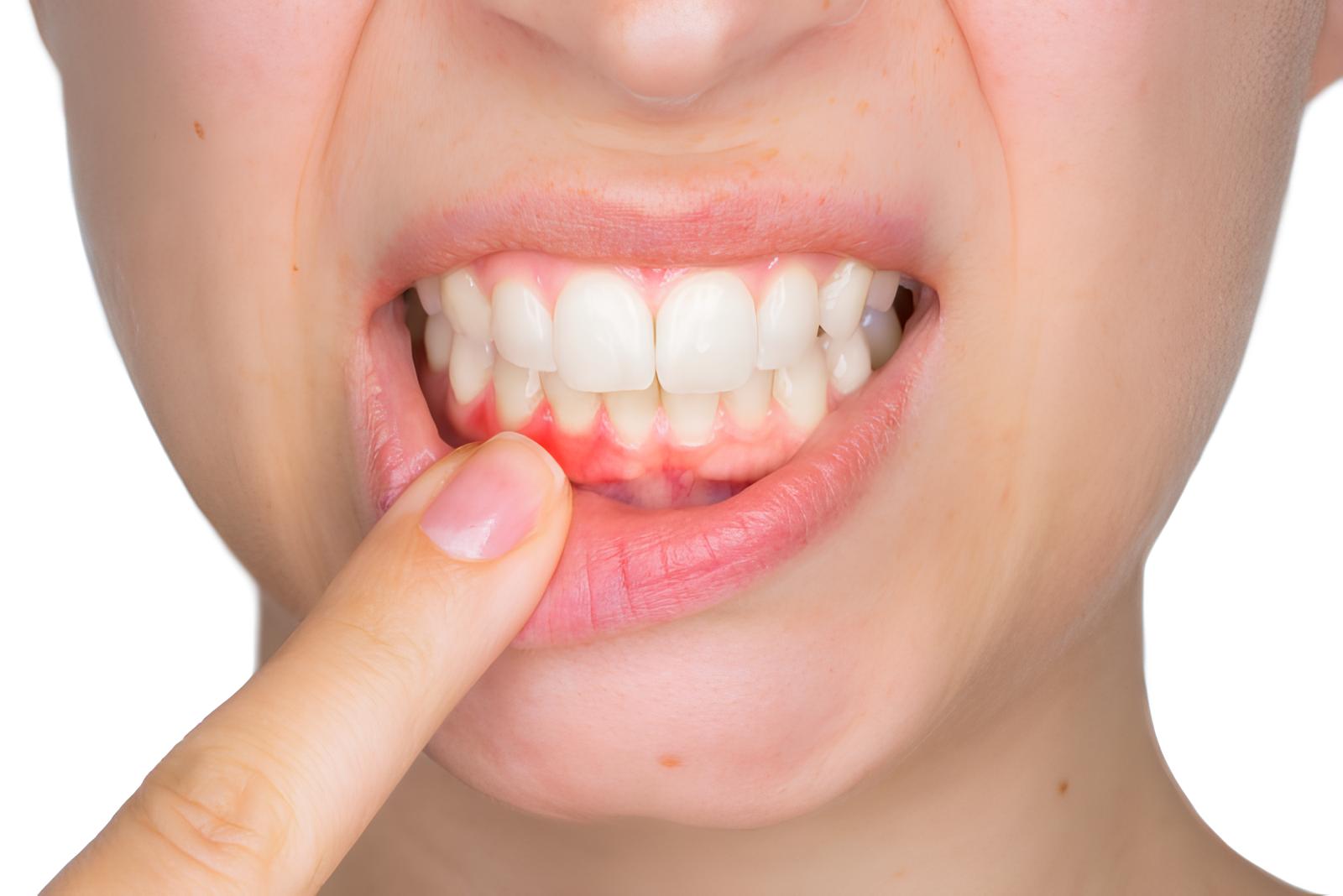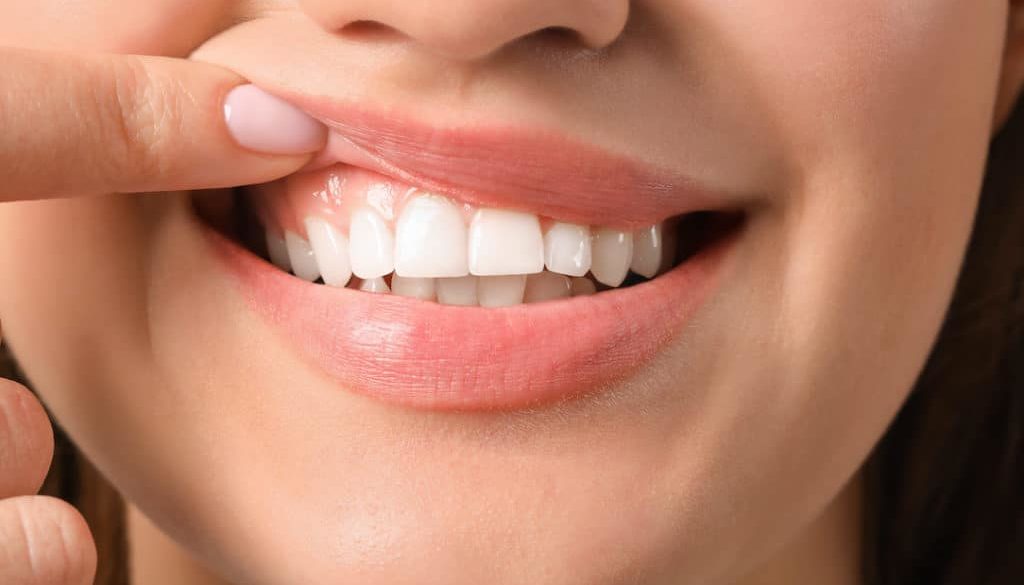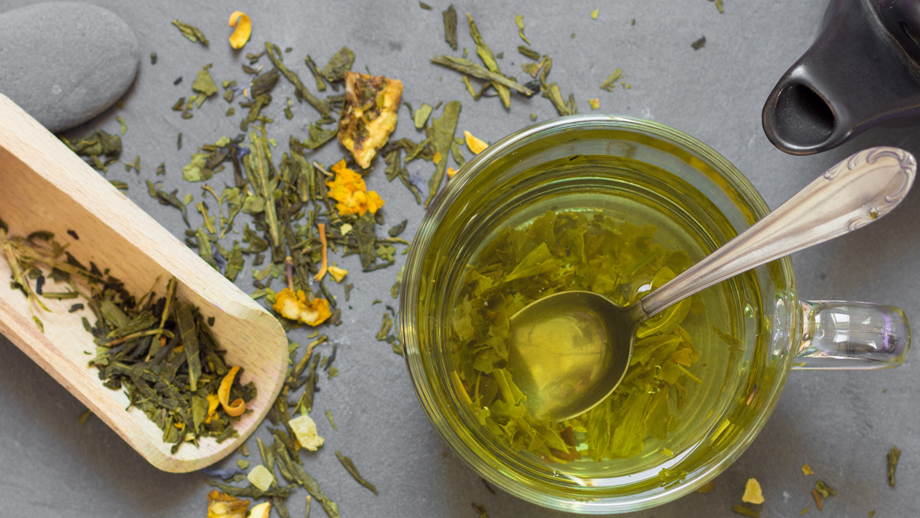Seeing blood coming out of teeth after brushing or flossing is extremely disgusting and may concern your oral hygiene. Gum bleeding is an indicator that there is an infection has invaded into your gums, which may also cause red and swollen gums. The majority of adults suffer through different types of gum diseases, and Periodontitis is one such gum disease in which the infection spreads towards the structures that hold these gums and harms bone and ligaments. In this case, the teeth become eroded and start falling out, followed by the jaw changing its structure. Unfortunately, If the condition worsens, it cannot be reversed without any surgical procedure.
Causes of Gum Bleeding
Gum bleeding is triggered when the plaque is accumulated in the teeth and gums, and the buildup gets hardened over time and transforms into tartar. The bacteria houses on the teeth’s surface and the gums. The bacteria attack the tissues around the teeth, which leads to cause periodontitis. Besides bacterial attacks, genetics and lifestyle play a significant role in developing gum disease.
The tartar, if left untreated, leads to frequent gums bleeding and tooth loss, and not just that, it is also linked to various other diseases such as heart stroke. In the absence of good oral hygienic habits, Periodontitis results into long-term inflammation. Gums disease is a major reason for tooth loss among people over 30 years of age.
Signs of Developing Gum Diseases
If you have excruciating pain in the gums or bleeding while flossing or brushing, these are signs of poor oral hygiene and indicate that you have developed gum disease. Following are a few signs to look for if you have Periodontitis:
- Bleeding while flossing or brushing
- Plaque buildup on teeth that hardens into discolored tartar
- Frequent pain while eating or chewing
- Bad breath
- Teeth loss
- Painful pus residing between teeth and gums
You need to be careful with these symptoms, which are prominent when a person becomes 40 or 50 years old. It is nearly impossible to reverse the teeth damage at this stage until the person goes through oral surgical treatment.
Natural Remedies for Gum Disease and Loose Teeth
As stated above, it is impossible to determine if you have a particular gum disease clearly, and you must consult with a dentist in case of frequent gum bleeding and pain. If you feel discomfort while eating or pus coming out of the gums or any other sign of gum disease, you may treat it at home with the help of some useful remedies. Obviously, these home remedies for gum infection are not alternatives to the medical consultation and the opinion of your dentist, but you may add any of these helpful home treatments into your oral care for quick recovery.
Saltwater
Starting the effective remedies for treating bleeding and painful gums with the easiest one on the list. If your gums are suffering from gingivitis, salt can be used to heal them as it is a natural disinfectant that helps get rid of inflamed gums and unpleasant breath. Rinse your mouth with salt water twice or thrice daily and spit it out. While following this easy remedy, remember that using too much salt water to relieve gum disease results in causing damage to the enamel surface.
Green Tea
Not only is green tea helps the overall body’s health and aid in fast digestion, but it also contains healthy antioxidants that have been shown to lessen gum inflammation considerably. The polyphenols included in green tea slow down the growth of harmful bacteria, which are the primary cause of gum infection. Adding a spoonful of organic honey to a cup of green tea treats gum disease and avoids tooth decay due to its potent antibacterial and antiseptic qualities. Also, green tea can be used as an alternative to coffee as it contains 28 mg of caffeine in a single serving cup.
Aloe Vera

You are aware of aloe vera’s benefits in treating skin burns and scrapes, but it also has some exceptional traits of reducing disease-causing germs in the mouth. Gel application may promote quicker initial healing and lessen discomfort. and treat sore or inflamed gums. If used in its 100% original form, Aloe vera juice reduces gum infection and swelling significantly. Take aloe vera juice, swish it in the mouth for 20 to 30 seconds, and spit it out. Repeat it twice or thrice a day for rapid results.
Alternative options to use as a mouthwash:
- Tea tree mouthwash
- Sage mouthwash
- Lemongrass oil mouthwash
Coconut Oil Pulling
This at-home remedy is helpful in teeth whitening, clearing sinuses, and removing foul breathing smell. Take fractionated coconut oil and put 1 to 2 tablespoons of it in the mouth. Swish thoroughly for 20 to 30 minutes, then spit it out. Now brush your teeth normally.
While doing this, do not swallow the coconut oil. You may also start by doing it for a smaller chunk of time and then gradually increase your time.
Clove
We all know that clove has been used to treat tooth pain and swelling for ages, which is why it is our favorite at-home topical remedy to treat swollen gums and gum diseases. Take some cloves and mince them so you have 1 tablespoon of cloves. Take a small damp cotton ball and soak it completely in the cloves and rub this ball on the gums gently. After one minute of the treatment, wash your mouth and spit out the cloves.
Tips to Take Care of Your Gums and Teeth

Gum health is important, just like the health of any other body part. People who suffer from gum disease usually confuse it with tooth pain and do not get it checked, and the disease starts excruciating as an infection. If you have detected any signs of gum disease, take timely action before it starts wobbling your teeth.
Here are a few useful tips to follow to ensure healthy gums and teeth.
- Use an anti-bacterial toothpaste that fights the plaque. There is also clinically proven antigingivitic toothpaste, which helps neutralize the plaque around the gums and give you healthy-looking teeth and gums.
- If you are a smoker, there is a high chance that you are at risk of developing gum diseases anytime soon. Not just that, but the toxic substances also delay the healing of gums. For the betterment of your gums and your overall health, you need to quit smoking and alter it with nicotine patches so you may slowly get rid of this addiction.
- Add gum-friendly food to your diet, such as lean meat, leafy vegetables, dairy products, and whole grains.
- Cut short your sugar intake as it is the major cause of tooth decay.
- Brush your teeth twice a day with the help of a soft-bristled brush, and be gentle on your teeth while brushing. Do not forget to replace your brush after 3 months.
- Add a clinically proven mouthwash into your oral hygienic routine.
- Dental floss is used to clean the debris from the interdental spaces. Flossing twice a day clears out the plaque from the spaces where it is difficult for the toothbrush to reach.
- Avoid the intake of alcohol and replace it with plenty of water.
- Get a thorough dental checkup at least once a year.
When Should I See a Doctor?
If the gum inflammation is treated and controlled at the early stage, it does not further affect the health of the gum. However, if gingivitis is not treated on time and is given enough time to increase into an infection, it causes severe dental complications. If you detect any of the following signs, rush towards your dentist and get your teeth examined.
- Bad breath
- Frequent bleeding of gums and teeth throughout the day
- Swelling in the gums that gradually expands
- Extreme pain in teeth that is unbearable
After a dental checkup, your dentist may refer you to a periodontist for further dental examination. You may go through a detailed physical examination of your mouth in which a periodontal probe is inserted beneath the gum lines to check for any development of the dental pockets. An X-ray is performed to see the bone structure that supports the jaw and teeth to see if there is any deformity surrounding your gums.
Bottom Line
If someone does not maintain regular hygiene routines like daily brushing and flossing, he is at risk of developing gum disease at any stage. If detected earlier, it can be reversed, but there could be irreparable damage as it goes on. Surprisingly, periodontitis may increase the risk of heart disease, pregnancy complications, and diabetes as well, but there is no medically proven reason yet to explain why it happens. Probably the bacteria that invade the gum and cause damage also produce wider effects on the body’s immune system and spread the infection to other body parts as well.
To prevent from further damage, it is important to get your gums checked properly and do not avoid any prolonged pain and inflammation around your teeth and gums, as oral hygiene is the prime indicator of your overall well-being.
Frequently Asked Questions (FAQs)
Can I treat gum disease on my own?
Gum diseases are easy to treat on your own if you have detected any troublesome issues at an early stage. Adding a few home remedies into your oral hygiene routine help in combatting the gum diseases or bleeding gums. Using an antibacterial toothpaste, brushing and flossing daily, quitting smoking, using mouthwash and coconut oil pulling, and maintaining good oral hygiene work effectively in treating periodontitis or gingivitis effectively at home.
Can you treat gum disease without going to the dentist?
Wash your mouth with salt water twice or thrice daily to save your gums from infection. Take a damp cotton ball, soak it in the minced cloves, and gently rub it on your gums. It helps in removing the plaque and reduces the gums bleeding.
Does rubbing salt on gums help?
Salt works as an excellent disinfectant to reduce the inflammation of the gum and get rid of gum diseases. Rinsing your mouth with salt water 2 to 3 times a day helps remove the plaque and debris from the gums and teeth and gives you quick relief.
What foods heal gums?
For healthy gums, you are recommended to consume fresh fruits and leafy veggies, milk, yogurt, nuts, whole grains, and plenty of water to keep your teeth healthy and heal the bleeding gums.
Does milk help gum disease?
Calcium is the most important component that ensures the health of teeth. As we know that dairy products such as milk and yogurt are rich in calcium, they are important to consume for healthy gums. While milk prevents gum diseases, it is also beneficial to encourage the growth of healthy bacteria that fills the cavities and cause tooth decay.
What drink is good for gums?
Plenty of water, milk, black tea, and green tea positively affect the health of gums and clean out the plaque buildup between teeth and gums.
Can lemon cure gum disease?
The antibacterial properties of lemon help reduce inflammation and fight gum diseases. It soothes the gum and cures the infection.
What herb kills gum disease?
Amla, hawthorn berry, liquor ice root, and neem help prevent gum diseases, reduce the swelling in gums, and prevent bacterial and fungal infections from affecting the gums.
Which antibiotic is good for a gum infection?
Flagyl, amoxicillin, and azithromycin are good for controlling gum infection due to their anti-inflammatory properties and are even prescribed to smokers who have tooth decay or infection.
What causes gum disease?
Once the plaque accumulates in the teeth and gums leads to serious oral infectious diseases. The harmful bacteria start attacking the gum tissues, which leads to inflammation, pain, and bleeding. If the plaque is left untreated for long, it transforms into tartar, the main cause of gum infection.
What is the strongest natural antibiotic for a gum infection?
Saltwater is an excellent and popular natural remedy to treat gum infections. Rinsing your mouth 2 to 3 times daily with salt water reduces the inflammation and heals the gum infection.
How is gingivitis different from periodontitis?
Gingivitis is the inflammation of the gums that leads to causing gums infection. If gingivitis is left untreated, it steadily starts affecting the surrounding bone and tissues of the gums due to increased plaque buildup. This condition is termed Periodontitis.
What is the major cause of gingivitis?
Gingivitis mostly occurs due to poor maintenance of oral hygiene. Our teeth and gums also require proper cleaning, and if they are not maintained properly, it may result in plaque buildup between teeth and gums, which further leads to causing damage to the surrounding tissues.
Which vitamin keeps gums healthier and strong?
The connective tissues in the gums are responsible for holding teeth in their place and keeping gums healthy and healed. Vitamin C treats gingivitis and other gum diseases by strengthening the gums’ connective tissues, preventing gum bleeding and swelling.
How long does it take to recover from gingivitis?
The symptoms of gingivitis go slowly with time after you have started treating it. However, it may take around 12 to 14 days to heal from gingivitis if the condition is not too serious.
Is it possible to have gum disease without any of its signs showing up?
People who smoke usually develop gingivitis or any other gum disease without any of its signs showing up. The nicotine in the cigarette prevents blood flow toward the gum tissues. Due to insufficient blood supply, there are no signs of redness or inflammation around the gums. In this case, the smokers only learn about the disease once their teeth start wobbling and the tooth-supporting bone and ligaments are affected.

John Davis is a passionate content writer with a knack for crafting engaging narratives across various subjects. With a keen eye for detail and a love for storytelling, John brings ideas to life through the power of words. His dedication to delivering high-quality and informative content has made him a trusted voice in the digital realm. When he’s not at his desk, you’ll find John exploring new hobbies and seeking inspiration in the world around him.









Loading…